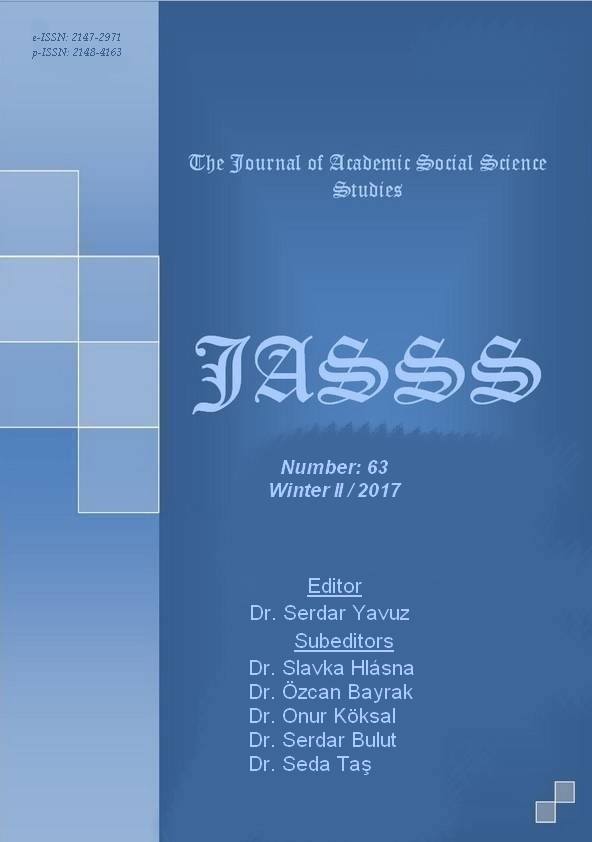GILLS DELEUZE FELSEFESİNDE “YERSİZ-YURTSUZLAŞMA” VE “ORGANSIZ BEDEN” KAVRAMLARIYLA MARK ROTHKO RESİMLERİNE BAKIŞ
Author :
Abstract
19. yüzyılın sonlarından 20. yüzyılın ortalarına kadar olan süreç, modern yaşamın pozitifliğine bağlı gelişme ve teknolojik ilerlemelerle tamamlandı. Savaş öncesi bir dünyada hakim olan modernist iyimserlik, kurulmaya çalışılan yeni dünya düzeniyle artık ilgisiz, modası geçmiş ve başarısızlığa mahkum gibi görünüyordu. Dünya savaşlarının ardından meydana gelen toplumsal olayların kitleler üzerindeki etkileri, kapitalizmin toplumu tüketim kültürüne yönlendirmesi ile yaşam biçimlerine olan etkileri, sanatı da konu ve imge düzeni bakımından farklı arayışlara itmiştir. Aynı süreçte felsefe alanında da yeni kavram üretimi bakımından arayışlara gidildiği görülmektedir. Felsefi anlamda birçok kavramın söylemi olan postmodernite, 20. yüzyılın ikinci yarısında özellikle Fransız felsefe geleneğinde etkili olan bir kavramdır. Postmodernite de sanat toplumsal hizmet veren bir araç olmaktan çıkarak estetik önemini de yitirmiştir. Sanatçı bu süreçte duygularını malzemesine aktarır ve böylece malzeme, bu duyguların izleyiciye geçmesini sağlayan aracıya dönüşür. Bu çalışmada, 20. yüzyılın postmodern düşünürlerinden biri olarak adlandırılan ve felsefenin önemli kuramcılarından Fransız düşünür Gilles Deleuze’ün ele aldığı “organsız beden” ve “yersiz-yurtsuzlaşma” kavramlarının aynı süreçler içerisinde üretilen resim sanatındaki eserlerin kavramsal yapısı üzerinde görülen paralellikler irdelenecektir. Sanatsal üretimlerinde üslupsal farklılıkları bulunan ancak bu araştırmanın ortaya koyduğu fikri görsel ve kavramsal anlamda desteklediği düşünülen sanatçılardan; Mark Rothko’nun çalışmaları hakkında bazı tespitlerde bulunulmaya çalışılacaktır. Ayrıca bu çalışmanın amacı felsefe ve sanat arasındaki ortaklığı sanat felsefesi bağlamında değerlendirerek bir araya getirmektir. Çalışmada konu hakkındaki birincil kaynaklar ve Deleuze’nin düşüncesini yorumlayan metinlere yer verilirken Deleuze’nin konu hakkındaki görüşleri ve bunların nasıl bir kavramsal ve anlam dizgesi oluşturduğu, göstergelerin incelenmesi ve betimlenmesi, resim sanatındaki yansımaları araştırmanın başlıca yöntemi olmuştur. Anahtar Kelimeler: Mark Rothko, Gilles Deleuze, organsız beden, yersiz-yurtsuzlaşma, modern, postmodern
Keywords
Abstract
The process from the end of the 19th century to the middle of the 20th century was completed with technological progress and development due to the positiveness of modern life. The modernist optimism prevailing in the pre-war world seemed to be unconcerned, outdated, and doomed to failure in relation to the new world order being set up. The effects on the masses of social events that took place after the wars of the world, capitalism has driven society to consumption culture and its diverse influences on the way of life, art and subject matter. The effects of the mass events of the social events following the wars of the world, the effects of the capitalism on the consumption culture and the influences on the life styles, and the arts, have led to different searches in terms of subject and image order. In the same period, it is seen that in the field of philosophy there is also a search for new concept production. Postmodernity, which is the discourse of many concepts in philosophical sense, is a concept that is effective especially in the French philosophy tradition in the second half of the 20th century. In this process, the artist transfers his feelings to his material and thus the material becomes a medium which enables these feelings to pass through to the audience. In this study, the social influence of the art of Mark Rothko, who has stylistic differences in his artistic production in this work, but one of the artists thought to support the idea of this research visually and conceptually, has been examined in terms of color and form. The aim of this work is to bring together the partnership between philosophy and art in the context of art philosophy. The study included primary sources on the subject and texts interpreting Deleuze's opinion. Deleuze's views on the subject and how they constitute a conceptual and meaning sequence, the examination and description of the representations, the reflections in the art of painting are the main method of the research. Rothko's images of the concepts of "body without organ" and "diterritorilazation" discussed by Gilles Deleuze, one of the postmodern thinkers of the 20th century, will be examined in terms of the gradual disappearance of the images, the contrasts in the wide, color blocks thought to be wrapped in the audience, and the similarities in the conceptual structure of the modulation's Works. Key words: Mark Rothko, Gilles Deleuze, body without organ, diterritorilazation, modern, postmodern





